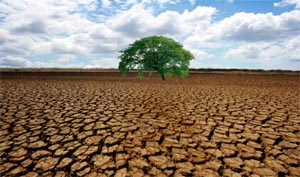FPAC Celebrates International Day of Forests with Focus on Climate Change
![]() Print this Article | Send to Colleague
Print this Article | Send to Colleague
 The Forest Products Association of Canada (FPAC), Ottawa, Ont., Canada, is underscoring the crucial role played by the forest sector in mitigating climate change. This comes as the 2015 United Nation's International Day of Forests on March 21 focuses on the theme of "Forests and Climate Change."
The Forest Products Association of Canada (FPAC), Ottawa, Ont., Canada, is underscoring the crucial role played by the forest sector in mitigating climate change. This comes as the 2015 United Nation's International Day of Forests on March 21 focuses on the theme of "Forests and Climate Change.""The Canadian forest products industry is part of the solution to the problem of climate change," said David Lindsay, president and CEO of FPAC. "Our vast renewable forest resource and the actions of our forest companies are truly making a difference to this crucial issue."
Trees absorb the carbon dioxide (CO2) that causes climate change. The forest sector also reduces dependence on fossil fuels by using residuals and byproducts to produce renewable energy. In addition, forest products such as biomaterials and bio-chemicals store CO2 and can replace products made from materials with a heavier carbon footprint. This storage can also be prolonged through recycling.
"All harvested trees in Canada are regrown, ensuring forests will be there in the future to continue absorbing carbon," Lindsay noted. "It's also exciting to see how wood fiber is being used in new innovative bio-products that also contribute to the reduction of greenhouse gas emissions."

Specifically, the Canadian forest products industry has made significant strides in addressing climate change through:
- The dramatic reduction by pulp and paper mills of the greenhouse gas emissions that cause climate change. Emissions are down by about 70% since 1990.
- The growing contribution of biomass and renewable energy produced by Canadian mills – enough to power the city of Calgary.
- The use of responsible and progressive forest management. Canada leads the world in third-party certified forests with 163 million hectares, or 43% of the global total.
- The recovery and recycling of wood products, with the recovery rate for paper around 70%—one of the highest rates in the world.
More information about the environmental record of the Canadian forest products industry is available online.
FPAC provides a voice for Canada's wood, pulp, and paper producers nationally and internationally in government, trade, and environmental affairs. The $58-billion-a-year forest products industry represents 2% of Canada's GDP and is one of Canada's largest employers operating in hundreds of communities and providing 235,000 direct jobs across the country.


